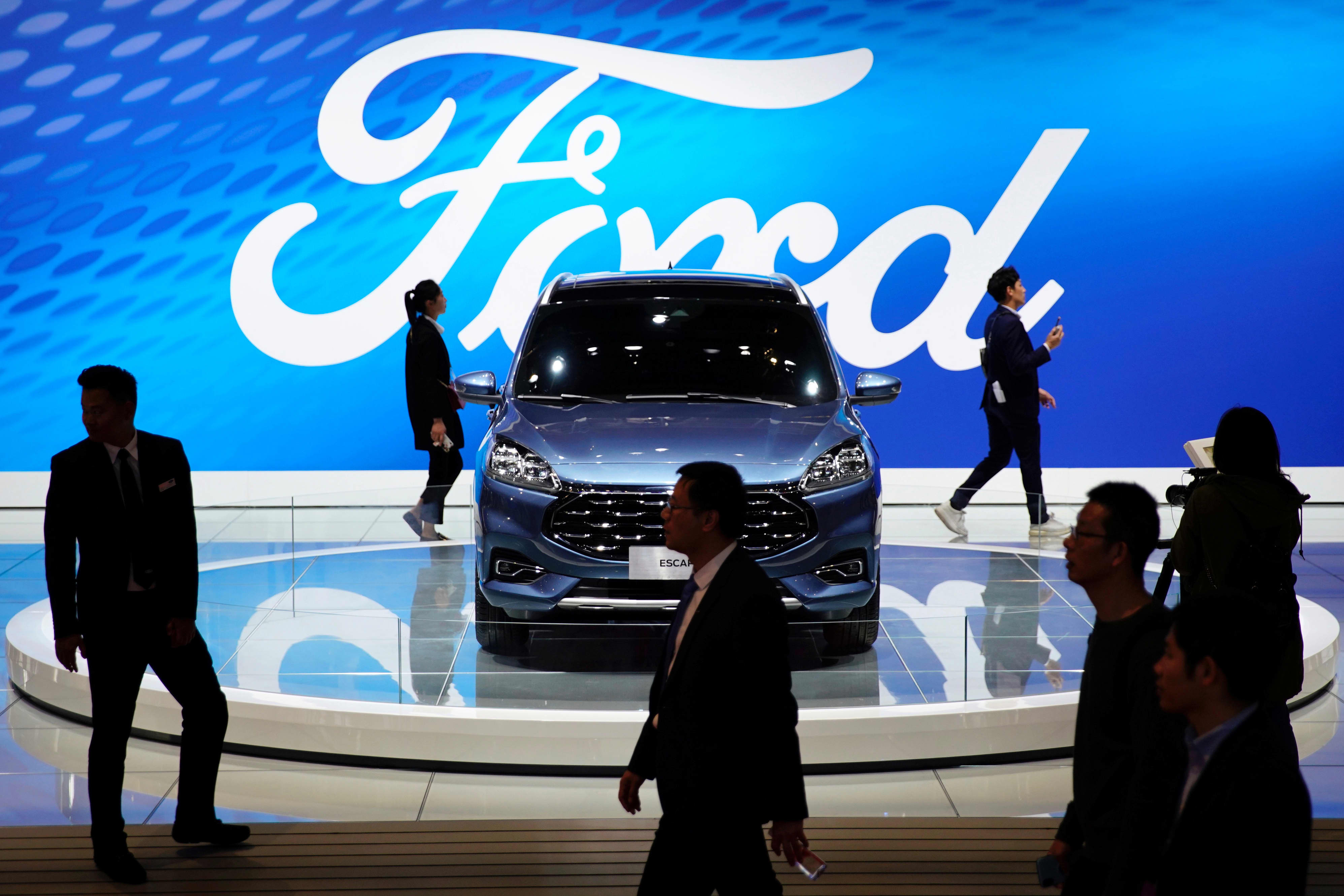
People walk by a Ford Escape SUV displayed during the media day for the Shanghai auto show in Shanghai, China, April 16, 2019.
Aly Song | Reuters
DEARBORN, Mich. — Ford Motor delivered a big earnings beat for the third quarter but lowered investor expectations for the rest of the year as the automaker grapples with falling consumer demand, primarily in China.
Here's what Ford reported Wednesday compared to Wall Street's expectations, according to Refinitiv consensus estimates:
- Adjusted earnings: 34 cents per share vs. 26 cents expected.
- Automotive revenue: $33.93 billion vs. $33.98 billion expected.
The automaker said it expects to make less profit than previously expected for the year, lowering its 2019 earnings guidance to between $6.5 billion and $7 billion, or between $1.20 and $1.32 per share. It previously said it would earn between $7 billion and $7.5 billion, or between $1.20 and $1.35 per share.
The company's shares slid by about 2.5% in after-market trading, after closing Wednesday at $9.21, up 1.5% for the day.
The change in guidance was attributed to higher than expected warranty costs and incentive spending as well as weakening sales in China, according to the company. Ford retained its free cash flow forecast of $2.8 billion or more for the year.
Ford CEO Jim Hackett, on a call Wednesday with investors, said the company is "disappointed" in the lower guidance but believes it is laying down the groundwork to be more successful in the long-term.
On an unadjusted basis, Ford's net income fell 57% compared to a year ago to $425 million, or 11 cents per share, due to $1.5 billion in special items that included $800 million for its previously-announced restructuring in India as part of a global turnaround plan led by Hackett. Adjusted earnings for the quarter were $1.79 billion, up 8% from a year ago.
"From a key takeaway standpoint, we think Q3 was a good quarter," Ford CFO Tim Stone told media during a briefing of the quarter. "The progress we've made also indicates we have more work to do, more opportunity ahead but it's a good start for the year."
Ford's earnings got a boost from a lower effective tax rate of around 12% to 13%, compared with a second-quarter forecast of 18% to 20% forecast for the year, according to Stone.
Total revenue declined 2% to $37 billion in the third-quarter, largely due to currency exchange rates.
The third-quarter was expected to be Ford's worst of the year as part of a weaker second half compared to 2018. The automaker strongly beat Wall Street expectations in the first three months of the year before missing them during a noisy second quarter.
Hackett announced a massive $11 billion restructuring plan last year, boldly deciding to phase out all sedans — except for its iconic Mustang — to refocus the company on its popular trucks and SUVs. The plan also frees up capital to ramp up its electric and autonomous vehicle programs. As part of the restructuring, Ford slashed about 10% of its white collar workforce, about 7,000 employees, earlier this year.
Ford expects the restructuring to cost $3 billion to $3.5 billion in earnings before interest and taxes for the year, including $3.3 billion during the first three quarters.
Investors have been patiently waiting to see the results. Ford's shares hit an almost decade-long low in December, closing at $7.63 a share on Christmas Eve, and are still trading under $10 a share, according to data compiled by FactSet.
The third-quarter report is the first since Moody's Investors Service downgraded Ford's credit rating to junk status in September.
Reaed More
Post a Comment